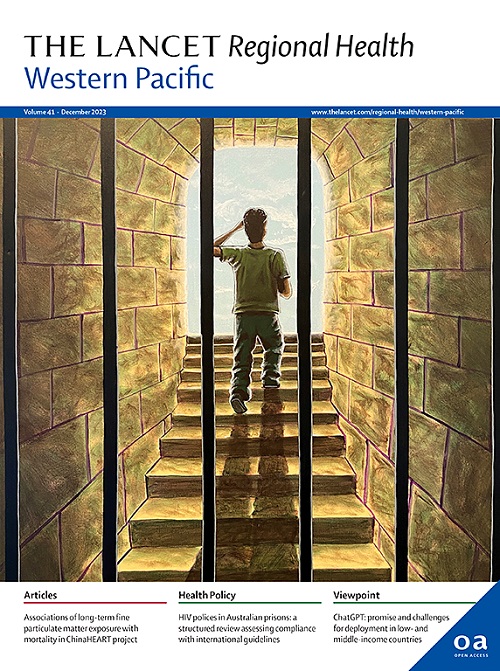A scoping review of the unique landscape and challenges associated with dementia in the Western Pacific region
IF 7.6
1区 医学
Q1 HEALTH CARE SCIENCES & SERVICES
引用次数: 0
Abstract
Dementia is a leading public health crisis that is projected to affect 152.8 million individuals by 2050, over half of whom will be living in the Western Pacific region. To determine the challenges and opportunities for capacity building in the region, this scoping review searched databases. Our findings reveal national and ethnoracial differences in the prevalence, literacy and genetic risk factors associated with dementia syndromes, underscoring the need to identify and mitigate relevant risk factors in this region. Importantly, ∼80% of research was derived from higher income countries, where the establishment of patient registries and biobanks reflect increased efforts and allocation of resources towards understanding the pathogenesis of dementia. We discuss the need for increased public awareness through culturally-relevant policies, the potential to support patients and caregivers through digital strategies and development of regional networks to mitigate the growing social impact and economic burden of dementia in this region.
Funding
FightMND Mid-Career Fellowship, NHMRC EL1 Fellowship, NHMRC Practitioner Fellowship (1156093), NHMRC Postgraduate scholarship (2022387).
对西太平洋地区与痴呆症相关的独特情况和挑战进行范围界定审查
痴呆症是一个主要的公共健康危机,预计到 2050 年将影响到 1.528 亿人,其中一半以上将生活在西太平洋地区。为了确定该地区能力建设所面临的挑战和机遇,本范围界定综述对数据库进行了检索。我们的研究结果表明,在与痴呆综合症相关的患病率、识字率和遗传风险因素方面,各国和各民族之间存在差异,这凸显了在该地区识别和减少相关风险因素的必要性。重要的是,80%的研究来自于高收入国家,这些国家建立了患者登记处和生物库,反映出它们在了解痴呆症发病机制方面做出了更多努力并分配了更多资源。我们讨论了通过与文化相关的政策提高公众意识的必要性、通过数字战略支持患者和护理人员的潜力以及发展地区网络以减轻痴呆症在该地区日益增长的社会影响和经济负担的必要性。
本文章由计算机程序翻译,如有差异,请以英文原文为准。
求助全文
约1分钟内获得全文
求助全文
来源期刊

The Lancet Regional Health: Western Pacific
Medicine-Pediatrics, Perinatology and Child Health
CiteScore
8.80
自引率
2.80%
发文量
305
审稿时长
11 weeks
期刊介绍:
The Lancet Regional Health – Western Pacific, a gold open access journal, is an integral part of The Lancet's global initiative advocating for healthcare quality and access worldwide. It aims to advance clinical practice and health policy in the Western Pacific region, contributing to enhanced health outcomes. The journal publishes high-quality original research shedding light on clinical practice and health policy in the region. It also includes reviews, commentaries, and opinion pieces covering diverse regional health topics, such as infectious diseases, non-communicable diseases, child and adolescent health, maternal and reproductive health, aging health, mental health, the health workforce and systems, and health policy.
 求助内容:
求助内容: 应助结果提醒方式:
应助结果提醒方式:


